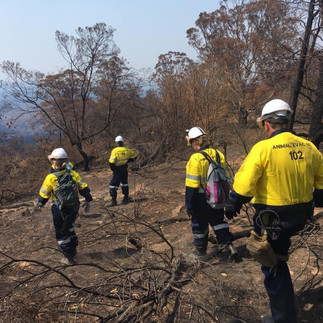Animal Evac NZ – a voice for animals in emergencies
- Pet Life Ltd

- Jan 13, 2022
- 3 min read
Do you have an emergency plan in place for all your pets in case of a disaster?
In our disaster prone country, we receive a variety of information on how to prepare ourselves for an emergency or disaster but what is missing is how we prepare our animal family members for emergencies.
After the evacuation of over 1600 people from the 2017 Edgecumbe floods (Bay of Plenty), over 1000 pets and livestock were left behind. There were no plans in place to evacuate them.
It was clear the animals needed a voice and an advocate for their management in disasters and emergencies, so Kararehe Whakawatea Animal Evac NZ (AENZ) was established. It is New Zealand’s only dedicated animal disaster management charity.
Animal Evac aims to:
advocate for and promote the inclusion of animals in emergency management planning
educate animal owners about animal emergency preparedness and evacuation with animals
provide support to emergency services for the evacuation and sheltering of animals and to reunite animals and owners.
With a network of over 300 trained volunteers throughout New Zealand, AENZ promotes animal-inclusive emergency preparedness, works with councils to pre-plan co-location (people and animal) evacuation shelters, educates animal owners about animal emergency readiness, provides Pet Emergency Plans and responds with emergency services to evacuate animals in an emergency.
The volunteers hone their skills in a variety of animal and emergency disciplines such as urban search and rescue, swift water rescue, working around fire, and animal and human first aid. Members also bring their own skills as they include veterinary practitioners, farmers, paramedics and animal control officers. AENZ volunteers are trained, prepared and ready to respond to emergencies. Since the Edgecumbe floods in 2017, AENZ has responded to the Nelson fires (2019), Australian bushfires (2020), Canterbury floods (2021) and Buller floods (Westland) (2021).
When a disaster or emergency hits, AENZ is on the ground working with government and emergency services to ensure that animals are included as part of the disaster response. AENZ may evacuate your scaled, feathered or furry friends who were unable to evacuate with you, set up temporary shelters to care for evacuated animals and, most importantly, help to reunite people with their pets.
AENZ’s support for animals in emergencies is not reserved only for family pets. In May this year, AENZ deployed to Canterbury, supporting farmers whose livestock were at risk during the floods. Swift water trained members used a boat and rope system to provide feed to stock trapped across floodwaters. Early in 2020, AENZ sent a team to assist with the Australian bushfires. Here the team distributed carry cages, evacuated pets and rescued injured wild animals, ensuring they received the treatment they needed.
Be prepared
Set up an emergency evacuation kit for all your pets, today. This should include blankets, food, a carry crate (or carry bowl for fish), vaccination certificate, medication, litter trays, cleaning products – basically everything your pet will need if it is away from home.
Download the pet emergency guide from tinyurl.com/Pet-Plan.
Microchip your pets (if you can) and ensure their registration is up to date with the NZ Companion Animal Register at animalregister.co.nz.
Volunteer
Join the team of trained responders. AENZ is looking for people with a variety of skills and you don’t have to be good at wrangling animals to join! They can also use people with administration, organisation, marketing, communications, cooking and people skills.
AENZ regularly runs foundation training courses across New Zealand. Completing this course will enable you to volunteer at AENZ events and continue to upskill in specialised training courses (animalevac.nz/join/).
Donate or follow AENZ
AENZ exists solely on fundraising activities. Treat yourself, your pets and support AENZ through animalevac.store.
Donate at givealittle.co.nz/org/animalevac.












Comments